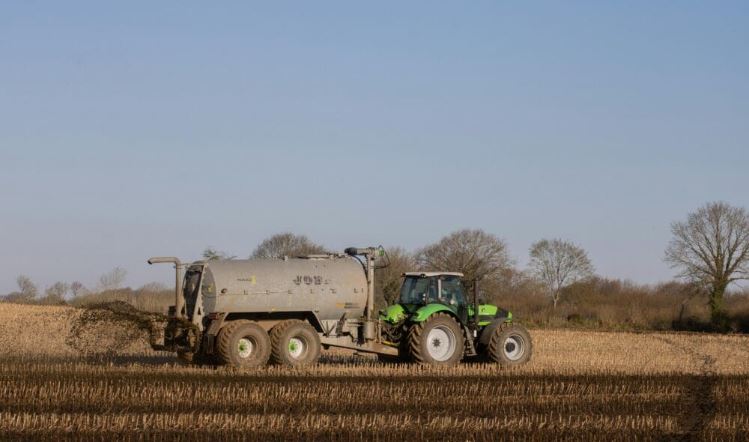Farmers in Johnson County, Texas are in the epicenter of litigation surrounding alleged PFAS contamination of agricultural land, water, and livestock. There are now two pending lawsuits, and the County has declared a state of emergency.

Background
Plaintiffs James Farmer, Robin Alessi, Patsy Schultz, and Tony and Karen Coleman are farmers in Johnson County, Texas.
Defendant, Synagro Tech, produces a biosolid fertilizer, Granulite. Plaintiffs allege Synagro has contracts with more than 1,000 municipal wastewater facilities across the country, including with the City of Ft. Worth. The Complaint alleges Synagro uses biosolids from these wastewater facilities to make the Granulite fertilizer, but claim this treatment does not remove all chemicals, including PFAS.
Per- and polyfluoroalkl substances (“PFAS”) are also known as “forever chemicals.” They are a human-made chemical that provides heat, stain, and water resistance. PFAS contains multiple carbon-flourine bonds, making them incredibly strong. Plaintiffs allege PFAS exposure has been associated with cancer, birth defects, developmental damage, and impede liver, kidney, and immune system function in humans. Plaintiffs also claim PFAS is toxic to animals. [For more background on PFAS and agriculture, click here for a podcast episode we did with Mary-Thomas Hart.]
Plaintiffs claim their neighbor purchased Granulate from Synagro in November 2022. The fertilizer was piled on the neighbor’s property and was then applied to and mixed with the soil in January 2023. Plaintiffs complained about the smell of the piles, and reported them to the Texas Commission on Environmental Quality and Johnson County officials.
At that point, Johnson County’s Environmental Crimes Investigator, Dana Ames, took samples and ran tests as part of her investigation into the Plaintiffs’ complaints. The test results showed high levels of PFAS in the Plaintiffs soil, surface water, and well water as well in fish and cattle from the Plaintiffs’ properties.
Detective Ames also obtained a sample of Granulate, which tested positive for 27 individual PFAS. Of these 27, 11 were found in high concentrations in Granulate, 8 of which were found on the Plaintiffs’ properties. Moreover, 18 of the 27 PFAS identified in the fertilizer were present in soil and water samples collected from the Plaintiffs’ land.
Plaintiffs claim this contamination has caused extensive damage for their land, livestock, and health. This includes medical issues for the landowners, the death of pets, livestock, and fish, the inability to grow gardens or sell animals, the potential threat of having to leave their homes, and a significant decrease in land values.
Lawsuit – Farmer v. Synagro Tech
In February 2024, Plaintiffs filed suit against Synagro in Maryland state court. Plaintiffs’ claims include strict liability-product defect, negligence, and private nuisance. They claim Synagro should have known the fertilizer was unreasonably dangerous and failed to provide adequate instructions or warnings to consumers. Plaintiffs seek both compensatory and punitive damages and injunctive relief to abate the nuisance. [Read Complaint here.]
Lawsuit – Farmer v. Environmental Protection Agency
In June 2024, Plaintiffs filed a second suit, this time in the United States District Court for the District of Columbia against the Environmental Protection Agency. Plaintiffs allege the EPA has a non-discretionary duty to regulate PFAS in biosolids, which it failed to fulfill. They challenge this alleged failure under the citizen suit provision of the Clean Water Act and as a violation of the Administrative Procedures Act. Plaintiffs claim the EPA failed to identify PFAS in biosolids and failed to pass regulations imposing limitations and restrictions on PFAS in biosolids. [Read Complaint here.]
Emergency Declaration
On February 11, 2025, Johnson County declared a state of disaster due to PFAS contamination on agricultural land. [Read declaration here.] The County says test results show an “immediate threat to the county’s agricultural sector, drinking water supplies, and public health.” The County requested Governor Abbott join in on the declaration to seek federal disaster assistance, but it does not appear he has taken action to date. According to the declaration, Johnson County will now be able to seek federal assistance for affected producers, implement emergency measures to protect public health and safety, and coordinate with state and federal officials with regard to assessment and clean up.
What happens next?
Concern regarding PFAS contamination is increasing across the nation. The Johnson County situation is being closely watched nationwide as some of the first cases involving fertilizer PFAS contamination.
From a policy perspective, some states are considering laws banning land applications of biosolids. Maine led the way, passing a ban in 2022. There is no law addressing the use of biosolids in Texas, but that could change. Helen Kerwin, a state representative from Johnson County, introduced House Bill 1674, which would require manufactures of biosolid products to test them monthly before selling them. Additionally, the Texas State Chemist has proposed a ban on biosolids labeled and marketed as fertilizer because of PFAS contamination. [Read proposed rule here and an article outlining the draft rule here.]
On a national level, the EPA released a draft rule related to PFAS and biosolids, which is open for public comment through March 17. [Click here for more information.] Additionally, the EPA “recommends states monitor biosolids for PFAS contamination, identify likely industrial discharges of PFAS, and implement industrial pretreatment requirements where appropriate.”
Additional Information
There have been a number of articles written about the situation in Johnson County:












